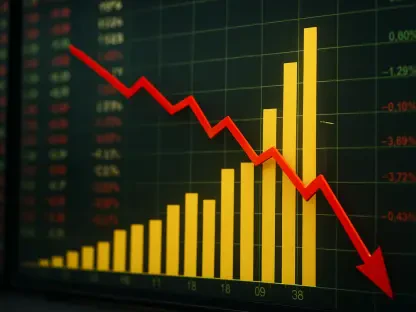In a world grappling with interconnected crises, the Sustainable Development Impact Meetings, hosted by the World Economic Forum in New York from September 22 to 26, brought together over 1,000 influential figures from government, business, civil society, and international organizations. Timed to coincide with the United Nations General Assembly and Global Goals Week, this gathering emerged as a critical platform for dialogue and action on the most urgent global challenges. With a mere 17% of the Sustainable Development Goals on track for achievement by 2030, the event underscored the pressing need for collaborative efforts amid a backdrop of strained multilateralism and rapid global shifts. The discussions spanned a broad spectrum of issues, including climate change, economic disparities, geopolitical tensions, and technological advancements, painting a picture of a planet at a crossroads yet brimming with potential for unified progress.
The urgency of the situation was palpable as leaders emphasized that no single issue stands in isolation, and economic disruptions often intertwine with environmental degradation, while geopolitical instability hampers humanitarian efforts. This interconnectedness formed the core of the event, driving home the message that siloed approaches fall short in addressing systemic challenges. Instead, a shared commitment to resilience and inclusivity emerged as a guiding principle, with participants advocating for innovative solutions and practical partnerships. The meetings not only highlighted the scale of the obstacles but also showcased tangible initiatives and frameworks that could pave the way for meaningful change across sectors and borders.
Key Themes Driving Global Action
Inclusive Economic Growth
Adapting to Economic Disruption
Amid a landscape of trade upheavals, technological shifts, and resource constraints, the focus on inclusive economic growth took center stage at the meetings. Leaders highlighted a stark projection that global debt could reach 100% of GDP by the end of the decade, signaling a new economic environment fraught with challenges. The consensus leaned heavily on the need for resilience, urging nations and corporations to adapt through collaborative strategies. Discussions revealed that fostering growth that benefits all societal segments requires a fundamental shift in policy and business mindsets. Rather than merely reacting to disruptions, there was a strong push for proactive measures that anticipate future turbulence, ensuring that economic systems are robust enough to withstand shocks while prioritizing equitable outcomes for diverse populations worldwide.
Beyond projections and warnings, the dialogue pivoted to actionable frameworks for navigating this complex economic terrain, highlighting the urgent need for strategic solutions. Reports and insights shared during the event emphasized the role of international cooperation in stabilizing markets and mitigating the risks of escalating debt. Leaders pointed to the ripple effects of slow growth in major economies, noting how such trends disproportionately impact vulnerable communities. The emphasis was clear: economic policies must integrate mechanisms for inclusivity, ensuring that marginalized groups are not left behind. This approach, blending foresight with partnership, was seen as essential to creating a global economy that serves as a foundation for stability rather than a source of division.
Digital Economy and Workforce Development
The transformation brought by the digital economy has emerged as a pivotal area for fostering inclusive growth, with specific attention to labor challenges in rapidly digitizing regions. A key report on trade and labor pathways in Kenya’s digital economy illustrated how targeted policies and business practices can address workforce disparities. Leaders stressed that as digital platforms reshape industries, millions of workers risk being sidelined without adequate skills training. The urgent call for upskilling and reskilling resonated throughout the sessions, with a clear understanding that preparing talent for future demands is not just an economic imperative but a social one, ensuring that technological advancements do not widen existing inequalities.
Further deepening the conversation, the meetings highlighted the intersection of digital innovation with sustainable economic opportunities, emphasizing the importance of aligning technological advancements with environmental goals. Green skills were identified as a critical area, linking workforce development to environmental objectives. The narrative shifted toward creating ecosystems where digital tools empower workers to contribute to sustainability initiatives, such as renewable energy projects or eco-friendly supply chains. This dual focus on technology and sustainability underscored a broader vision of growth—one where economic progress aligns with planetary well-being. By investing in education and accessible training programs, leaders argued, nations can build a workforce capable of driving both innovation and equity in an increasingly digital world.
Climate and Environmental Sustainability
Urgent Climate Action
Climate change stood out as a defining challenge, with leaders grappling with its profound economic and health implications during the meetings. Projections estimating that climate-related health impacts could cost the global economy $1.5 trillion by 2050 served as a sobering reminder of the stakes involved. Discussions centered on the need for innovative investment models to support nature-positive solutions that mitigate these risks. Carbon capture and utilization technologies were spotlighted as transformative tools, offering industries a pathway to produce sustainable fuels and materials. The urgency to scale such solutions was echoed by stakeholders who recognized that delayed action would only amplify costs and human suffering, particularly for the 3.2 billion people already affected by extreme weather and ecosystem decline.
Building on this urgency, the dialogue explored how a climate-smart economy could serve as both an environmental necessity and a business opportunity, with leaders from various sectors sharing insights on integrating sustainability into core operations. They emphasized cross-sector strategies that align profitability with planetary health. The role of financial mechanisms in accelerating this transition was a key point, with calls for increased funding for green initiatives. The consensus was that addressing climate challenges requires a reimagining of economic priorities, where investments in resilience and sustainability are not seen as costs but as essential drivers of long-term prosperity. This shift in perspective was framed as critical to safeguarding both economies and communities against escalating environmental threats.
Scaling Environmental Initiatives
Concrete steps toward environmental sustainability were showcased through initiatives like the Global Plastic Action Partnership and Uplink’s Nature Returns Challenge, which offered actionable pathways to reduce pollution and mobilize capital for nature. These programs demonstrated how collaboration across governments, businesses, and civil society can yield measurable impact, from cutting plastic waste to restoring ecosystems. Leaders highlighted the importance of scaling such efforts globally, recognizing that localized successes must be replicated to address the vast scope of environmental degradation. The focus was on creating replicable models that encourage widespread adoption, ensuring that solutions are not confined to specific regions but contribute to a broader movement for planetary recovery.
Another dimension of these initiatives was the emphasis on engaging diverse stakeholders to drive systemic change. Discussions revealed that mobilizing resources for nature requires innovative partnerships that bridge public and private sectors, leveraging each entity’s strengths to create impactful solutions. The meetings underscored the potential of technology in enhancing these efforts, such as using data analytics to track pollution or monitor biodiversity. This integration of innovation with environmental goals was seen as a cornerstone of a sustainable future, where economic activities no longer harm ecosystems but actively restore them. The commitment to scaling these initiatives reflected a shared understanding that protecting the environment is inseparable from securing global stability and human well-being.
Critical Global Challenges
Geopolitical and Humanitarian Resilience
Navigating Tensions
Against a backdrop of geopolitical volatility, the meetings provided a forum for leaders to address the pressing need for global security and stability, highlighting the urgency of unified action in an increasingly fragmented world. Rising tensions and the erosion of multilateral frameworks were identified as significant barriers to collective progress, with many expressing concern over the potential for escalated conflicts among major powers. Despite these challenges, there was a notable undercurrent of optimism regarding the role of regional cooperation in filling gaps left by weakened international systems. Leaders advocated for dialogue and strategic alliances among like-minded groups to tackle shared issues, from climate initiatives to connectivity projects, suggesting that smaller, focused collaborations could serve as building blocks for broader stability.
Delving deeper into the geopolitical landscape, the discussions highlighted how economic policies and resource distribution are often intertwined with political unrest, creating complex challenges for global stability. The volatility in global markets, exacerbated by inconsistent policies, was seen as a direct threat to sustainable development efforts. Leaders emphasized the importance of maintaining a rules-based world order, even as traditional frameworks face strain. The potential for regional partnerships to address immediate challenges, such as energy security or trade disruptions, was framed as a pragmatic approach to navigating uncertainty. This focus on actionable, localized cooperation offered a counterbalance to the broader concerns, presenting a pathway to rebuild trust and foster resilience in a divided global arena.
Addressing Humanitarian Crises
The staggering scale of humanitarian needs in conflict zones like Ukraine and Gaza dominated conversations around global aid systems, with leaders describing the current situation as unprecedented. The mismatch between the vast requirements in these regions and the limited resources available underscored a critical shortfall in international response mechanisms. Sessions emphasized the need for a paradigm shift, moving away from short-term relief toward long-term rebuilding efforts that prioritize sustainable recovery. This approach was seen as essential to breaking cycles of dependency and instability, ensuring that aid efforts create lasting impact rather than temporary reprieves in crisis-stricken areas.
Expanding on this theme, the meetings called for bottom-up strategies that empower local communities to lead their own recovery processes. Leaders argued that effective humanitarian aid must be rooted in the specific cultural and social contexts of affected regions, rather than imposed through top-down models. The urgency to reform global aid architecture was a recurring point, with suggestions for increased transparency and accountability in resource allocation. By focusing on rebuilding infrastructure, education, and healthcare systems over extended timelines, there was a shared vision of creating resilient societies capable of withstanding future shocks. This long-term perspective was positioned as a moral and strategic imperative, aligning humanitarian efforts with broader sustainable development goals.
Technology and Responsible Innovation
Balancing Innovation and Trust
The rapid evolution of frontier technologies sparked intense debate at the meetings, with a focus on balancing innovation with trust and accessibility. The expansion of the Global Lighthouse Network, which now includes additional industrial sites leveraging digital tools for productivity and sustainability, exemplified the transformative potential of technology. Similarly, the launch of the Human-Machine Collaboration initiative introduced frameworks to ensure that technological advancements remain human-centric. Leaders acknowledged the dual nature of these developments, recognizing their capacity to drive progress while also posing risks if not guided by robust ethical standards and inclusive policies.
Further exploration of this balance revealed concerns over how restrictive regulations could stifle innovation, particularly for smaller developers, and emphasized the importance of finding a middle ground. The discussions highlighted the need for governance structures that encourage experimentation while safeguarding public trust. Examples of open-source models were cited as ways to democratize access to cutting-edge tools, ensuring that benefits are not monopolized by a few large entities. This push for equitable frameworks was seen as crucial to preventing technology from becoming a source of division. By prioritizing trust and transparency, leaders aimed to harness digital advancements as catalysts for sustainable growth across diverse global contexts.
Equitable Access to Tech
Ensuring that technological progress benefits broader populations emerged as a critical priority during the meetings. Leaders stressed that without deliberate efforts to bridge access gaps, innovations risk exacerbating existing inequalities, particularly in under-resourced regions. The call for regulatory environments that support smaller developers was a key takeaway, with an emphasis on policies that lower barriers to entry for emerging tech firms. This approach was framed as essential to fostering a more inclusive digital landscape, where the advantages of advancements like artificial intelligence or automation are shared widely rather than concentrated among a select few.
In addition to regulatory considerations, the dialogue turned to the role of education and infrastructure in achieving equitable tech access, highlighting their importance in bridging the digital divide. Building digital literacy and expanding connectivity in underserved areas were identified as foundational steps to ensure that communities can engage with and benefit from new tools. Leaders pointed to successful case studies where public-private partnerships have driven tech inclusion, suggesting that such collaborations could serve as models for global implementation. The overarching goal was to create a tech ecosystem that empowers rather than excludes, aligning innovation with the broader mission of sustainable and inclusive development championed throughout the event.
Social and Equity Priorities
Health and Gender Equity
Climate’s Impact on Health
The intersection of climate change and health has emerged as a pressing concern, with a particular focus on its disproportionate effects on vulnerable populations, especially women. Leaders at the meetings highlighted how escalating extreme weather and environmental degradation exacerbate existing health challenges, from respiratory issues to infectious diseases. Projections of significant economic losses due to climate-related health impacts underscored the urgency of integrating environmental and health policies. The discussions emphasized that without targeted interventions, these compounding crises will continue to strain global healthcare systems, particularly in regions least equipped to respond to such challenges.
A deeper dive into specific health impacts revealed the need for innovative solutions tailored to at-risk groups, and the Global Alliance for Women’s Health presented actionable initiatives addressing issues like maternal care and cancer treatment in countries such as Kenya and Nigeria. These programs illustrated the potential for localized strategies to mitigate the broader effects of climate stressors on health outcomes. Leaders advocated for increased investment in research and infrastructure to support these efforts, recognizing that health equity cannot be achieved without addressing environmental factors. This holistic approach was seen as vital to building resilient communities capable of withstanding the dual pressures of climate change and systemic healthcare gaps.
Advocacy for Equity
High-profile advocacy brought a personal dimension to the push for health and gender equity, with voices like Halle Berry amplifying the mission of initiatives such as the Global Alliance for Women’s Health. The focus on women’s health issues, including menopause care and cancer prevention, highlighted systemic gaps that require urgent attention. Leaders emphasized that tailored innovations are essential to improving outcomes, particularly in regions where cultural and economic barriers limit access to care. This advocacy underscored the broader theme of equity, linking health disparities to environmental and social determinants that must be addressed in tandem for sustainable impact.
Beyond individual campaigns, the meetings explored how global frameworks can support localized health solutions. Discussions highlighted the importance of cross-sector collaboration in scaling programs that address specific needs, such as maternal health in underserved communities. The integration of climate considerations into health equity strategies was a recurring theme, with leaders noting that environmental stressors often impact women the most due to societal roles and disparities in resource access. The commitment to closing these gaps through policy, funding, and awareness was framed as a critical step toward a more just world, where health outcomes are not determined by geography or gender but by a shared dedication to well-being.
Path Forward with Collaborative Momentum
Reflecting on the Sustainable Development Impact Meetings held in New York, it became evident that global leaders had forged a vital space to confront the intricate web of challenges shaping today’s world. The intense focus on inclusive growth, climate action, geopolitical stability, technological governance, and health equity painted a comprehensive picture of the urgent work that lies ahead. Initiatives launched during these sessions, from carbon capture frameworks to targeted women’s health programs, provided concrete steps that have already begun to inspire action across sectors. The commitment to resilience and partnership stood out as a unifying thread, guiding the diverse discussions toward a common goal of sustainable progress.
Looking ahead, the momentum generated must translate into sustained efforts that prioritize multistakeholder collaboration. Governments, businesses, and civil society should build on the frameworks established, ensuring that solutions like nature-positive investments and digital inclusion strategies are scaled globally. Strengthening regional alliances to address geopolitical and humanitarian needs will be crucial, as will the development of regulatory environments that balance technological innovation with equity. By maintaining the spirit of cautious optimism that permeated the event, stakeholders can transform the insights gained into lasting change, paving the way for a future where systemic challenges are met with unified, impactful responses.









